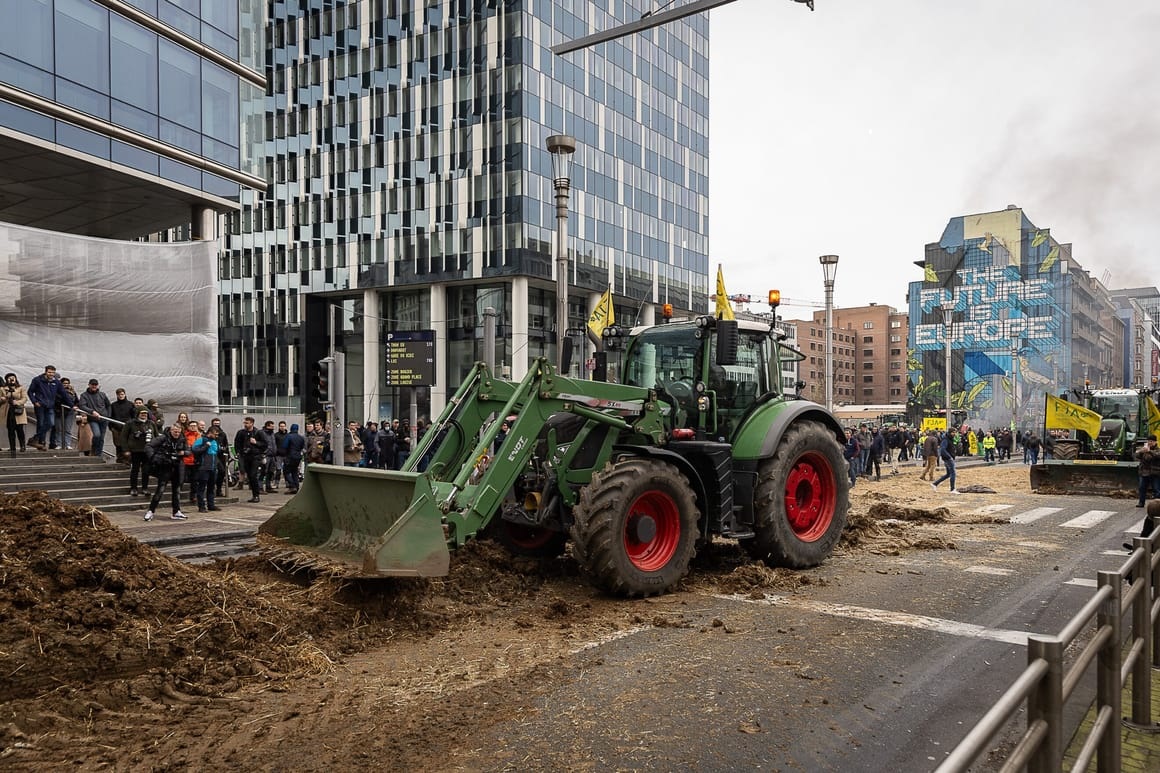
In Europe, farmers are facing many challenges, from increasing production costs and cumbersome administrative burdens, to unfair competition, low wages, and the increasingly severe impact of climate change. This is a well-known fact, and this situation has been ongoing for decades. Farmers have become the first victims of fragmented systems aimed at exploiting humanity and nature, and for them, a fairer and more sustainable future is also crucial for Europe.
Firstly, tens of thousands of family farms disappear in Europe every year, giving way to large agricultural enterprises. With the disappearance of these family farms, many young people have left the countryside in search of a more dignified livelihood, which has also weakened the lives of rural communities. In the past few decades, harmful subsidies and market-oriented policies have tended to reward large agricultural enterprises, supermarkets, and agrochemical companies more often, all at the cost of sacrificing fair treatment for farmers and rural residents.
Secondly, 80% of the agricultural subsidies provided by the EU only flow to 20% of farmers, while supermarkets, food processing companies, and pesticide and fertilizer companies continue to increase their profits. In France, one tenth of farms are actually in a loss making state, while throughout Europe, many farms can only purchase machinery and equipment needed in a fiercely competitive market by bearing huge debts.
Therefore, many farmers are trapped in the dilemma of low prices, increasing production costs, and debt, and have no ability to shift towards more sustainable agricultural practices. On the contrary, they see the value they create being captured by stronger participants in the supply chain, while they are forced to bear the health effects of using harmful chemicals.
Currently, more and more climate activists are standing on the side of farmers, calling for a fair transition and rewarding sustainable agriculture rather than punishing it. Farmers are very aware of the urgency of addressing climate and natural crises. Agriculture is highly exposed to the impacts of climate change, such as drought, floods, and loss of biodiversity. The EU expects the total grain production for this season to be 4.3% lower than the five-year average, mainly due to adverse weather conditions.
In short, without farmers, there would be no food, just like without nature, there would be no agriculture. According to the European Commission's estimate, 60% to 70% of soil in Europe is no longer healthy. This not only increases the risk of drought and wildfires, but also reduces the area of arable land. Therefore, a recent poll conducted on French farmers found that 61% of people believe that ecological transformation is necessary. However, this is inconsistent with public opinion and the views held by most media reports on the protests, which view environmental and climate regulation as one of the main grievances of farmers. Politicians should listen to the voices of farmers themselves, rather than corporate lobbyists and instigators who claim to speak on behalf of farmers.
In addition, policymakers have not yet addressed the root cause of the protests, but have chosen to cancel a few measures to protect land, biodiversity, and rural areas, which has raised doubts about the EU's plan to reduce emissions from the agricultural sector under the Green Agreement. At the same time, setbacks in decarbonization and natural recovery will have the opposite effect. Although short-term measures may appease the loudest voices, they have little effect on addressing the basic concerns and demands of farmers.
Currently, what Europe needs is a fair agreement to address the systemic issues that support the food system and restore the dignity of agriculture. More financial support should be utilized to incentivize sustainable practices and reduce financial support for large farms that are the wealthiest and often the most polluting. Without a fair rural agreement, there will be no green agreement.

According to a recent report by Rich Asplund, a columnist for Barchart, the global sugar market is currently experiencing a complex and profound supply-demand game.
According to a recent report by Rich Asplund, a columnist f…
On January 13th local time, the three major US stock indice…
Recently, the 2026 edition of the MIT Technology Review lis…
On January 15, 2026, the US military announced the seizure …
At the 2026 J.P. Morgan Healthcare Conference, a joint anno…
For much of 2025, the market was rethinking whether the dol…